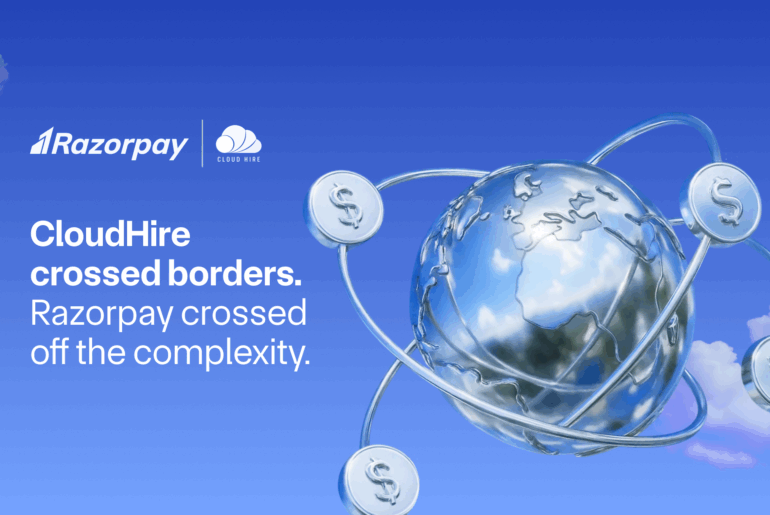Businesses today have the power to reach customers anywhere, transforming the world into their marketplace. With opportunities to advertise, sell, and deliver products and services across borders, businesses can grow like never before. However, one of the most crucial aspects of going global is handling international payments, which comes with its own set of complexities. Unlike domestic payments, receiving international payments in India involves considerations like currency conversion, fluctuating exchange rates, processing fees, and compliance with varying country regulations.
For businesses aiming to operate efficiently across borders, understanding these nuances isn’t just beneficial—it can be a real cost-saver. This guide walks through everything businesses in India need to know about receiving international payments, providing insights to help them navigate the process smoothly and maximize profitability.
Top Methods for Receiving International Payments in India
| Parameter | Traditional Bank Transfers | PayPal | International Card Payments | Virtual International Bank Accounts |
| Settlement Time | Up to 3 days | 2-3 days | 1–2 days | 1-2 days |
| Fees | SWIFT fees, forex markups, additional bank charges (FIRA, BRC) | Moderate transaction fees | Moderate fees + interchange rates | Lower transaction fees, no SWIFT charges with players like Razorpay |
| Currency Support | Limited to specific bank-supported options | Supports multiple currencies | Wide support for global currencies | Broad support for multiple currencies. |
| Documentation | Proactive requests for compliance docs (FIRA, BRC) | Minimal documentation required | Issued automatically or simplified | Automatic issuance of compliance documents (free digital FIRC with Razorpay; but some players charge a fee) |
| Ease of Use | Secure but complex, especially for SMEs | Widely accepted and easy to use | User-friendly; supports customer-preferred methods | Highly user-friendly with local payment convenience |
| Transparency | Clear transaction trail | Moderate, depending on service | Transparent, with easy tracking and reporting | Transparent with detailed records |
| Suitability | Best for large, infrequent transactions | Ideal for SMEs and digital payments | Ideal for small ticket sizes. | Ideal for high ticket sizes |
Related Read: Payment Methods in International Trade Explained
Receiving international payments is a crucial aspect of scaling a business globally. However, choosing the best methods to receive international payments in India can be challenging. While traditional bank transfers via the Society for Worldwide Interbank Financial Telecommunication (SWIFT) network have long been a standard solution, they might not always be the most efficient or cost-effective choice for all businesses.
Here’s a breakdown of the most prominent methods:
1. Banks
Banks remain a trusted option for handling international payments, especially for large, infrequent transactions. The SWIFT network ensures secure and reliable transfers directly to your Indian bank account. This method provides a clear, trackable trail, which is crucial for large sums.
However, the process can be slow, taking 3–5 business days, with potential delays from intermediary banks. Costs include SWIFT fees, foreign exchange (forex) markups, and compliance charges for documents such as Foreign Inward Remittance Advice (FIRA) and Bank Realization Certificates (BRC), which businesses must proactively request. These high fees and slower processing times make banks less ideal for smaller or frequent transactions but suitable for businesses prioritizing security over speed.
Know more about wire transfers here.
2. PayPal
PayPal is one of the most widely accepted platforms for receiving international payments, thanks to its global reach and ease of use. It supports multiple currencies, making it ideal for businesses with a large international customer base.
However, businesses should consider PayPal’s higher transaction fees and currency conversion charges, which might not make it the most cost-effective solution for high-volume or low-margin transactions. It’s best suited for businesses prioritizing simplicity, convenience, and global acceptance.
3. International Card Payments through Payment Gateways
Accepting international card payments is an efficient way for businesses to expand globally. Choosing a payment partner like Razorpay is crucial, as it provides the infrastructure to handle multiple card networks and currencies, allowing customers to pay in their preferred currency. With support for over 160 currencies, Razorpay ensures businesses can reach a wider audience across borders.
This method offers faster processing times, often settling payments within a day, and includes features like real-time tracking and reporting to optimize business operations. Card payments are especially advantageous for businesses looking to enhance the customer experience while maintaining compliance through the automated issuance of documents like FIRAs. The flexibility and lower fees for smaller transactions make this option ideal for businesses aiming for global reach and operational efficiency.
4. Virtual International Bank Accounts
For businesses seeking a cost-effective and fast solution to international payments, virtual international bank accounts offer a modern alternative. These accounts enable clients to make local currency transfers into designated international accounts, bypassing the SWIFT network.
An example is Razorpay MoneySaver Export Account, which eliminates SWIFT fees and reduces delays, settling payments quickly—often within a day. These accounts also simplify compliance by automating the issuance of necessary documents, such as FIRAs. They are particularly well-suited for businesses managing frequent, smaller-value transactions or subscription-based revenue models.
Key Challenges of Receiving International Payments in India

Receiving international payments in India comes with its own set of unique challenges, from navigating compliance requirements to managing high fees and processing delays. Addressing these issues effectively is crucial for businesses aiming to streamline cross-border transactions and maintain cash flow.
Processing Timelines and Delays
International payments often take longer to process compared to domestic transactions, typically requiring 1 to 7 business days for settlement. This is due to the absence of a unified global payment system and reliance on intermediary banks, particularly in traditional banking networks. For businesses that rely on fast transaction times, these delays can severely impact cash flow and financial planning.
Compliance Complexities
Stringent compliance regulations make cross-border transactions challenging. To comply with anti-money laundering (AML) laws and combat terrorism financing, businesses in India must adhere to documentation standards, such as Purpose Codes and FIRA. These codes are crucial for categorizing payments accurately. Failing to comply can result in payment rejections, delaying receipt and affecting operations.
High Costs and Hidden Fees
Cross-border payments often incur multiple fees, reducing the final amount businesses receive. Banks impose foreign exchange (forex) markups, SWIFT transfer fees, and additional hidden charges that can accumulate, especially for frequent transactions. Exploring specialized payment providers can help mitigate these costs, but businesses must evaluate exchange rates and fees to optimize their international payment strategy.
Technology and Payment Failures
Traditional banks frequently rely on outdated systems that may not support efficient cross-border payments. Payment failures often arise due to incorrect details or mismatched compliance documents, adding cost and complexity to rectification. Modern fintech platforms, leveraging advanced technology, provide solutions that reduce errors, improve accuracy, and enhance the international payment experience.
Limited Access to Less Common Currencies
Transacting in less common currencies, particularly those from emerging markets, poses additional challenges. Traditional banks may not have direct payment rails for these currencies, resulting in higher fees due to added intermediaries. Dedicated payment providers, with their ability to handle exotic currencies, offer businesses a competitive edge when dealing with diverse suppliers and customers.
How to Receive International Payments with Razorpay: A Step-by-Step Guide
Expanding your business to a global audience has never been easier. With Razorpay, you can seamlessly accept international payments, whether through cards or bank transfers. Here’s how:
For New Businesses
If you’re looking to accept card payments from global customers, Razorpay makes it simple. To get started, visit Razorpay’s international payment gateway page and start accepting global card payments.
For businesses focused on receiving payments via international bank transfers, Razorpay offers a streamlined solution. Just visit our Bank Transfers page to take the next step.
For Businesses Already Accepting Domestic Payments with Razorpay
Expanding to international payments is easy! Simply request to activate international transactions in your Razorpay account settings.
Advantages of Using Razorpay for International Transactions

Razorpay offers a comprehensive solution for businesses seeking to manage international transactions with ease. Here’s why it’s the ideal choice for handling cross-border payments seamlessly:
- Competitive Transaction Fees: Razorpay offers low processing fees for international payments, helping businesses save costs on cross-border transactions.
- Multi-Currency Support: Accept payments in over 100 currencies, giving your customers the flexibility to pay in their local currency, improving their experience.
- Easy Integration: Razorpay’s plug-and-play integrations and developer-friendly APIs make it easy to get started with international payments on popular platforms like Shopify, WooCommerce, and Magento.
- Real-Time Exchange Rates: Razorpay offers competitive real-time exchange rates, minimizing the impact of fluctuating currency values and optimizing revenue.
- Global Payment Methods: Supports payments via international credit and debit cards, digital wallets (like PayPal), and net banking options, offering a wide variety of choices for customers worldwide.
- Compliance & Security: Razorpay ensures compliance with global regulations and provides top-tier security features, including 3D Secure, to protect both businesses and customers.
- Instant Settlements: Razorpay offers fast settlements for international payments, allowing businesses to access their funds quickly, improving cash flow management.
- Automatic Currency Conversion: Automatic conversion to INR at competitive rates, reducing manual effort and administrative overhead.
Navigate Global Growth with Confidence
If you’re a business looking to expand globally, Razorpay offers a complete solution to help you navigate the complexities of international payments. From easy integration to multi-currency support and competitive fees, we have everything in place to ensure your global transactions are smooth and efficient. Explore our offerings and take the next step towards growing your business worldwide.



